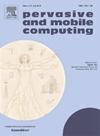合作频谱感知认知无线电网络中的区块链启发式信任管理
IF 3.5
3区 计算机科学
Q2 COMPUTER SCIENCE, INFORMATION SYSTEMS
引用次数: 0
摘要
认知无线电网络(CRN)中的合作频谱感知(CSS)提高了频谱决策的精确度,但也带来了受到恶意次级用户(SU)攻击的漏洞。本文提出了一种去中心化的信任和声誉管理(TRM)框架来解决这些漏洞,强调需要降低与中心化系统相关的风险。受区块链技术的启发,我们提出了一种适用于 CRN 中 CSS 的分布式 TRM 方法,大大降低了恶意攻击的影响。我们的方法利用信任证明(PoT)系统来增强 CSS 的完整性,从而提高频谱决策的准确性,同时减少误报和误报。在该系统中,SU 的信任分数会根据其感知报告动态更新,它们将利用信任分数协同参与新区块的形成。仿真结果验证了所提方法的有效性,表明该方法具有提高 CRN 安全性和可靠性的潜力。本文章由计算机程序翻译,如有差异,请以英文原文为准。
Blockchain-Inspired Trust Management in Cognitive Radio Networks with Cooperative Spectrum Sensing
Cooperative spectrum sensing (CSS) in cognitive radio networks (CRNs) enhances spectral decision-making precision but introduces vulnerabilities to malicious secondary user (SU) attacks. This paper proposes a decentralized trust and reputation management (TRM) framework to address these vulnerabilities, emphasizing the need to mitigate risks associated with centralized systems. Inspired by blockchain technology, we present a distributed TRM method for CSS in CRNs, significantly reducing the impact of malicious attacks. Our approach leverages a Proof of Trust (PoT) system to enhance the integrity of CSS, thereby improving the accuracy of spectral decision-making while reducing false positives and false negatives. In this system, SUs’ trust scores are dynamically updated based on their sensing reports, and they will collaboratively participate in new blocks' formation using the trust scores. Simulation results validate the effectiveness of the proposed method, indicating its potential to enhance security and reliability in CRNs.
求助全文
通过发布文献求助,成功后即可免费获取论文全文。
去求助
来源期刊

Pervasive and Mobile Computing
COMPUTER SCIENCE, INFORMATION SYSTEMS-TELECOMMUNICATIONS
CiteScore
7.70
自引率
2.30%
发文量
80
审稿时长
68 days
期刊介绍:
As envisioned by Mark Weiser as early as 1991, pervasive computing systems and services have truly become integral parts of our daily lives. Tremendous developments in a multitude of technologies ranging from personalized and embedded smart devices (e.g., smartphones, sensors, wearables, IoTs, etc.) to ubiquitous connectivity, via a variety of wireless mobile communications and cognitive networking infrastructures, to advanced computing techniques (including edge, fog and cloud) and user-friendly middleware services and platforms have significantly contributed to the unprecedented advances in pervasive and mobile computing. Cutting-edge applications and paradigms have evolved, such as cyber-physical systems and smart environments (e.g., smart city, smart energy, smart transportation, smart healthcare, etc.) that also involve human in the loop through social interactions and participatory and/or mobile crowd sensing, for example. The goal of pervasive computing systems is to improve human experience and quality of life, without explicit awareness of the underlying communications and computing technologies.
The Pervasive and Mobile Computing Journal (PMC) is a high-impact, peer-reviewed technical journal that publishes high-quality scientific articles spanning theory and practice, and covering all aspects of pervasive and mobile computing and systems.
 求助内容:
求助内容: 应助结果提醒方式:
应助结果提醒方式:


